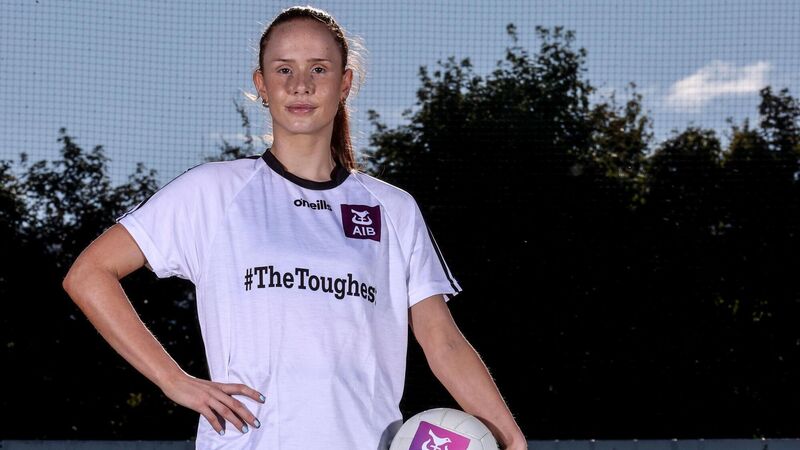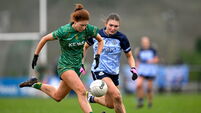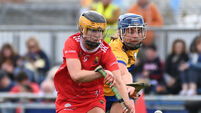LGFA should consider two-point scoring arc, says Galway's Olivia Divilly

LGFA star Olivia Divilly of Kilkerrin-Clonberne in Galway believes the LGFA should consider a two-point scoring arc for future contests. Picture: Dan Sheridan/Inpho
All-Ireland ladies football finalist Olivia Divilly reckons the LGFA should consider a two-point scoring arc for their game as well.
Jim Gavin's Football Review Committee have come up with a series of 'rules enhancements' for the men's game, including two points for a point scored on or beyond a new 4m arc.














